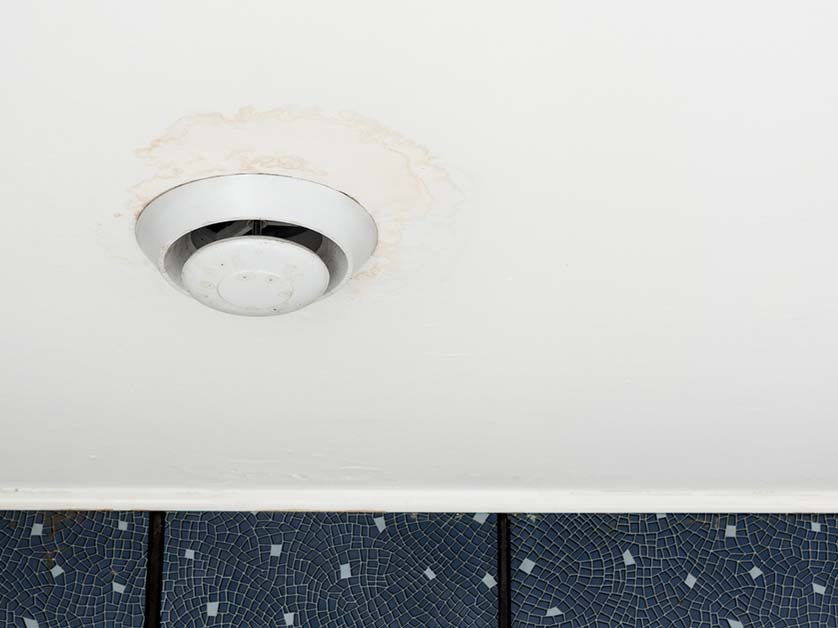“Sweating” AC vents can be a nuisance. However, they are indicative of a much bigger problem. If left unchecked, it can affect the efficiency of your air conditioning system, leading to long-term inefficiency and performance. Cafco Services, one of the leading local HVAC and refrigeration equipment services providers in the area, explores the reasons behind sweaty AC events and how to prevent them from occurring.

Causes of AC Vent Sweating
Condensation forming on your AC vents can be attributed to the following factors:
-
High Humidity Levels. The most common culprit behind sweating AC vents is humidity. When the humidity levels in your home are too high, it can cause condensation on the surface of the vent. On the flip side, when the air is too dry, the vent surface is also prone to sweating.
-
Improperly Installed or Insulated Vents. Incorrect installation or insulation of your AC vents can also cause condensation to form on the vents. Insufficient insulation can allow the warm air from outside to enter the ducts, causing sweating when it meets the colder air inside the vent. This can happen due to gaps or cracks around the vents or ducts.
-
Dirty or Clogged AC Filters. Dirty or clogged AC filters can also hamper the performance of your AC system, leading to sweating AC vents. Dirt and dust clog the filter, restricting airflow. It also forces the system to work harder to cool your home, leading to condensation.
-
Incorrectly Sized or Malfunctioning HVAC System. An incorrectly sized or malfunctioning AC system can also cause condensation on the vents. If the system is too big or too small for your home, it cannot effectively remove moisture from the air. This means humidity will be trapped inside, leading to sweating on the vents.
-
Dirty Coils or Blocked Drain Lines. Dirty coils or blocked drain lines can cause your AC vents to sweat. Dirty coils cannot absorb heat adequately. This results in condensation buildup. Blocked drain lines prevent water from draining properly. This causes condensation to build up on the vents.
-
Faulty Duct Sealing. Incorrectly sealed ducts allow warm, humid air from outside to enter the ducts. Sweating appears on the vents when it mixes with the cooled air inside the vent
-
Ductwork Location. The location of the ductwork can also play a role in condensation forming on the vents. If the ducts are located outside or in an unheated space, they will be exposed to colder air temperatures. This could cause the air inside the ducts to cool down, leading to condensation.
-
Lack of Maintenance. Keeping your HVAC system in top shape is vital to ensuring its longevity and performance. This involves regular cleaning and servicing of the equipment. In doing so, you minimize sweating around the vents as well as prevent issues from affecting your home’s comfort needs.
Potential Consequences of Sweating AC Vents
Now, why is this a concern? Sweating AC vents can lead to water damage to walls and ceilings, weakening the structure over time. It can also lead to aesthetic issues in your home, with condensation leaving unsightly stains and discolorations. The longer this goes unaddressed, the more likely for water to drip or scatter to areas immediately surrounding the vents.
Another consequence of sweating through AC vents is higher energy consumption. If your system struggles to cool your home, it will use more energy, leading to higher utility bills. This issue can also lead to poor air circulation if left unattended. The presence of moisture in living spaces can result in a stuffy and uncomfortable environment, decreasing your home’s indoor air quality in the process. Mold and mildew may grow around the vents, causing the spores to circulate in the indoor air. Apart from the musty smell, you’ll notice some of the members of your household suffering from allergies and other respiratory issues.
The Importance of HVAC Maintenance
The good news is that you can stop AC vents from sweating through regular inspections and maintenance. Many HVAC companies offer such services, which include cleaning the cooling equipment and the ductwork, to ensure equal distribution of cooled air around your home without causing condensation to form around the vents.
Other Important Tips to Keep in Mind
The best way to prevent AC vents from sweating is to stay proactive. Keep the following in mind:
-
Choose the Right HVAC Size. If you have plans to invest in a replacement AC system, make sure that your choice is neither too big nor too small for your home. If it’s too big, it can’t remove moisture from the air. A system that’s too small can’t cool your home effectively. The ideal size depends on your home’s layout, climate and other factors.
-
Use the Right HVAC Filter. Make sure the air filters you use for your AC can help promote better indoor air quality in your home. Take into account the MERV ratings when you look for replacements. High-efficiency particulate air (HEPA) filters, which are usually the go-to choices, capture allergens and other particles up to 0.3 microns in size. Of course, don’t forget to clean or replace dirty filters.
-
Seal Cracks in the Ductwork. If there are any gaps or cracks around the vents or ducts, have them sealed by professionals as soon as possible. This is where adequate insulation is essential. Ensure your ductwork has adequate insulation and has a tight seal around so no conditioned air can escape.
-
Keep Vents Unblocked. To prevent condensation, make sure your vents are clear of any obstructions, such as pieces of furniture or window treatments like curtains or drapes. Blocked vents will prevent air from flowing freely, leading to condensation on the surface.
-
Adjust Humidity Levels. The simplest and most efficient way to avoid AC vents from sweating is to adjust the humidity levels in your home. If the air is too humid, consider installing a dehumidifier to lower the moisture content of the indoor air. When cooking food or taking a shower, make it a point to turn the exhaust fan on to draw indoor moisture out and keep humidity levels at bay.
Count on Cafco Services!
For all your HVAC needs in Cincinnati, OH, turn to Cafco Services. We are committed to providing nothing but the best in heating and cooling services, from new installations to preventative maintenance agreements. You can also count on our team to help you find the best HVAC filter products that best fit your equipment. Call us at (513) 242-3400, or fill out our contact form today to schedule a consultation!
